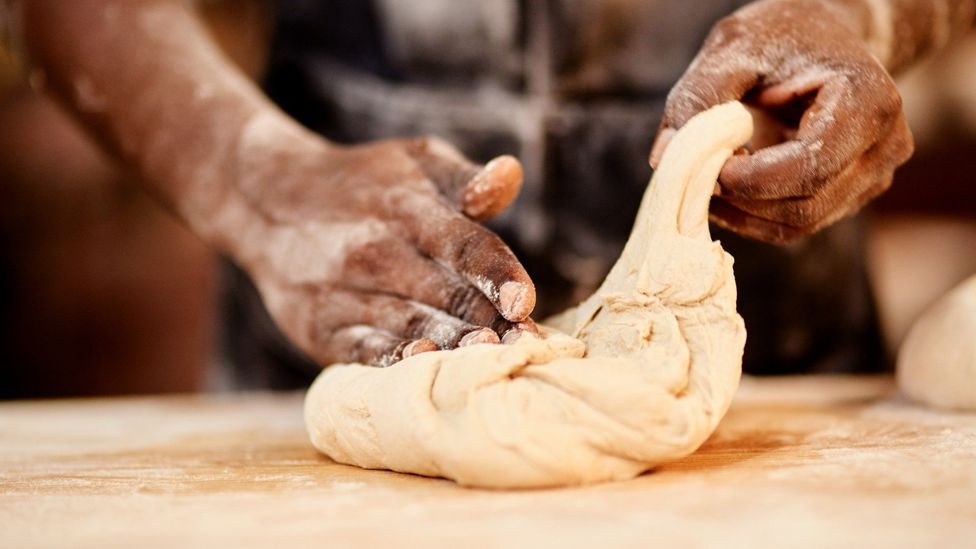Josh Christie wrote his first book about beer while working full time at an independent bookstore. “That book was all written between five and eight in the morning. I’d get up and get started on that, and then go into work and work a full day,” says Christie, from Portland, Maine, in the US. Juggling a full work schedule was a challenge, but so was switching off after work. “In the evening, the hardest part was going to a bar, having a beer and thinking, ‘Is this something that I'm going to write about, or is this just a beer that I'm enjoying?’.”
Christie, 36, has built a career around doing things he loves. Books and reading are a passion, and when he first started working in an independent bookstore during college, he found he also loved discussing books with other people. Today, he owns his own bookstore with a partner, and also writes about books, beer and skiing for newspapers and magazines.
His interests and work life have become completely intertwined. “It's hard to figure out how I would pull my writing out of either beer or skiing, or pull my bookstore business brain out of my enjoyment of reading books and talking about books.”
The idea of doing what you love for a living has always been alluring. As the adage sometimes attributed to Confucius goes: “Choose a job you love and you’ll never work a day in your life”. And this sentiment has perhaps never been more pertinent; since the pandemic hit, more of us have been reconsidering our working lives. New research shows we increasingly want to care about – even love – our professions. In this context, turning a hobby or interest into a career may seem like the obvious choice.
But is there a downside to combining our passions and our working lives? Does the reality mean turning a beloved hobby into a spreadsheet-filled obligation? And how do you switch off from your job when the boundaries between work and leisure become blurred? There are also finances to consider, if your passion doesn’t earn you enough money to live the lifestyle you want. So, is doing what you love for a living really all it’s cracked up to be?

Monetising your favourite activities may seem like a win-win - but experts caution that there can be unexpected challenges (Credit: Getty)
Happy job, happy life?
There’s plenty of new evidence to suggest people want to find work that suits them better. A 2021 McKinsey survey showed two-thirds of all US-based workers said the health crisis had made them re-evaluate their purpose in life, and 50% were reconsidering the kind of work they do as a result.
For some, developing and monetising their hobbies is a potential solution. In another survey of 2,000 Americans, 60% said they had improved their skill in one or more hobbies since the pandemic hit the US in March 2020, and 40% thought it was “very” or “extremely” likely that they would be able to make money from the hobby once the pandemic was over.
Turning an enjoyable hobby into something profitable can feel like a direct way to improve wellbeing. Engaging with activities that bring us joy enriches us, explains New York-based clinical psychologist Yesel Yoon. “If you allow that kind of part of yourself to be active, that helps you in the long run develop a greater sense of psychological well-being and happiness.”
One reason we aspire to turn something enjoyable like a hobby into a job, explains Yoon, is the prospect of “reversing the equation”. For example, someone who doesn’t enjoy their job but wants to increase feelings of happiness may feel changing their job for a more enjoyable activity will do the trick.
Doing work we are interested in can also bring about a deep sense of purpose. Rikke Hansen, a career-change advisor and podcaster from London, who often helps people transition to new ventures in fields they are passionate about, says people who successfully move into fields that they love reap real benefits. “You get autonomy, you get mastery and you get purpose. And that’s the most motivational way to work,” she says.
There is also a pervasive idea that doing what you love for a living is something to aspire to. Yoon warns against buying too deeply into the idea “if you're doing mindless work, you’re a sell-out, but if you’re doing that thing you're really passionate about then you're really living”. But Christie admits there’s a social status in being known as “the guy that owns the bookstore”.
External acknowledgement of his successes can also be fulfilling on a deeper level. Being recognised by industry peers for his work is rewarding, and he says, “you don't get that recognition in your life necessarily out in the world just doing the things you enjoy”.
Boundaries needed
Yet the reality of making your passion into your career also comes with complications.
First, pursuing hobbies or interests for pleasure can feel different when they fall under the remit of ‘work’. For Christie, opening a bookstore has inevitably meant balancing activities he enjoys, such as choosing stock for the store, with business-related tasks like lease negotiations.

Turning a beloved hobby into an income can be very hard work that comes with blurred work-life boundaries (Credit: Getty)
It has also been hard work. Even with a partner to split the load of business ownership, he works shifts in the store and then deals with business-related texts, emails and phone calls in his off hours. And while the work may be fulfilling, the money isn’t great. “I do this career because I’m passionate about it, more so than for the financial reasons. I love independent bookstores, but it’s not the highest paying career in the world,” says Christie. Looking to supplement his income, he realised that his writing about beer and skiing was also something he could get paid for, monetising yet another pleasure pursuit.
Christie’s sense of self is deeply connected to his work, something common for people in his position. Hansen says for clients who move into fields based on their passions, work often becomes central to their identity. But this means that while successes can be magnified, so too can failures – or even the fear of failure. “People feel that if they fail with their business, then they fail as a person,” she says.
For Christie, this means reading negative Yelp reviews for his bookstore can be a surprisingly painful experience. “It's really hard to ignore that stuff. Anything that is putting down your work intrinsically feels like it's putting you down as well,” he says.
When work is deeply intertwined with identity, it can also become difficult for people to put a price on what they do, something Hansen has experienced with her clients. People may undercharge for their work either because they lack confidence, or they feel that, as the work is enjoyable, it is something they would be willing to do for free. Despite wanting to do something they love for a living, “they think work is not supposed to be fun”, says Hansen. For Christie, this means underpaying himself as a bookseller because he enjoys the work and gets access to perks, such as free books, that bring him pleasure.
But the biggest challenge Christie has found in doing what he loves for a living is “really always feeling like I’m working. Discussions about the things that I love turn into discussions about future work, or past work, or just turn into work, period.”
As a self-described workaholic, he has struggled to draw boundaries between work and passion – something common among people who monetise the things they love. A Deloitte study showed that people who were passionate about their jobs were willing to work longer hours and be more available due to “internal drive to learn and improve”.
At the same time, Christie can’t imagine himself doing anything else for a living because “in a lot of cases, I still enjoy the activity as well as enjoying the work. The bookstore and writing about things I love is an incredible creative outlet. I'm really grateful for that”.
Instead, he’s working to find a better balance between work and leisure in his day-to-day life. He’s also decided to keep one hobby back for himself. Two years ago, Christie took up baking as a way to relax. But when an editor recently asked if he would like to write an article about it, he declined. “I decided this is something that I purely do for myself,” he says. “I realised now that I want to keep something sacred.”
"Love" - Google News
September 28, 2021 at 05:24AM
https://ift.tt/3CWkosR
Does doing what you love for a living come with a price? - BBC News
"Love" - Google News
https://ift.tt/35xnZOr
https://ift.tt/2z10xgv
Bagikan Berita Ini














0 Response to "Does doing what you love for a living come with a price? - BBC News"
Post a Comment